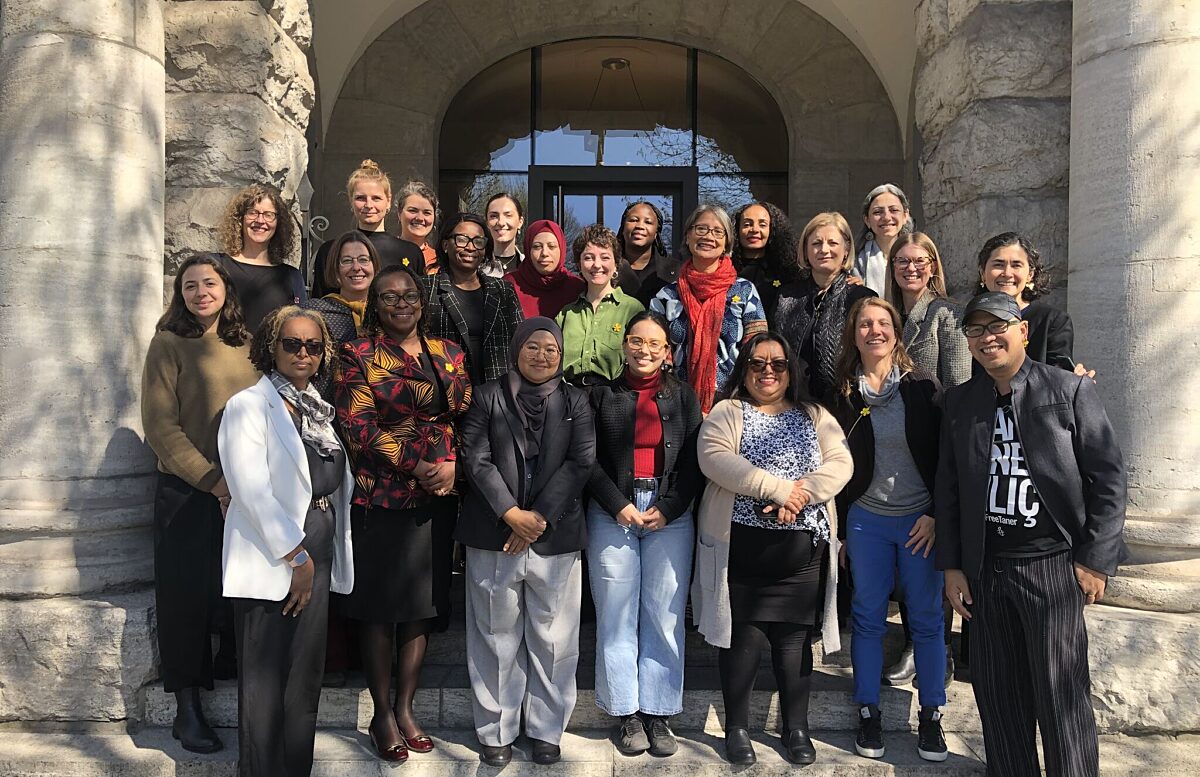NEWS | 16 Apr 2025
Informal, comprehensive and enduring
How transitional justice can advance gender-transformative change

A workshop brought together experts and activists to share strategies to foster gender-transformative change and sustainable peace in transitional justice processes.
Post-conflict contexts present unique opportunities for gender-transformative change. How can transitional justice, aimed at the reparation of harm, prevention of repetition, and initiation of systemic change, best make use of these opportunities? What strategies ensure that women are meaningfully involved – not only in designing formal transitional justice measures, but also in implementing them and following up on their outcomes?
Together with the Working Group on Peace and Development (FriEnt), we recently hosted a two-day workshop to explore these questions. Women’s rights activists, peacebuilding professionals and transitional justice experts from around the world came together to share how gender-transformative change and sustainable peace can be fostered in transitional justice processes.
The power of informal processes
As marginalised groups, particularly women, often bear the brunt of conflict and its aftermath, their involvement in negotiations about peace and transitional justice is essential. But what do we mean by “negotiations”? The workshop highlighted that this goes far beyond official, formal processes. Negotiations also include informal consultations among allies to build coalitions as well as efforts to support and empower survivors who actively engage in the pursuit of justice. Being strategic can further mean reaching out to those who may not be directly involved in negotiations, but who can open doors and enable access.
Discussions revealed that gender-transformative change must occur on multiple levels: personal, institutional and societal. Since transitional justice is a long-term process – one that far outlasts any single mechanism aimed at dealing with the past – informal efforts across all levels are needed. The invited experts reported that they often work on multiple tracks in parallel: from supporting the healing and empowerment of survivors to collaborating within their communities and reshaping the public recognition of the consequences of war or conflict-related sexual violence. Prevention and the early integration of reparations emerged as additional strategies for achieving gender justice, especially at the institutional level.
A rare but vital space
Solidarity was not only present among the participants in the room – it was central to the conversation on achieving gender-transformative change. Despite differing regional contexts, those gathered in the workshop found that many of the challenges they face are strikingly similar. As one participant noted, women frequently lead the charge for justice and equality after conflict – yet they are frequently the last to benefit from the peace dividend.
The workshop concluded with a policy dialogue moderated by Chris Coulter, Executive Director of the Berghof Foundation, which focused on strengthening transitional justice within the framework of the Women, Peace and Security Agenda. Drawing on experiences from across the globe, practitioners pointed out that transformative change requires long-term engagement and funding to yield results. The conversation also revealed the importance of establishing direct relations with local experts and communities.
Throughout the two days, participants reaffirmed that creating safe spaces for reflection and exchange is vital. Opportunities like this workshop – where women can speak not only about “women's issues” in transitional justice, but also critically discuss general challenges – are rare, but deeply needed.